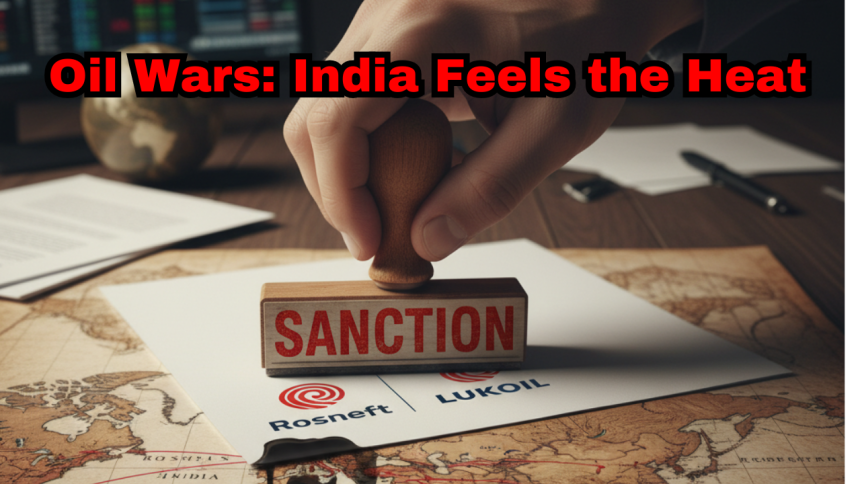By: Gitanjali Thorat | PR Desk
Washington: The United States has tightened its economic grip on Moscow, announcing sanctions on Russia’s two largest oil companies—Rosneft and Lukoil. The move immediately pushed global crude prices up by nearly 3%, creating ripples across the world’s energy markets.
U.S. Targets Russia’s Energy Core
The sanctions aim to choke off vital revenue used to fund Russia’s war in Ukraine. Together, Rosneft and Lukoil produce over 5% of global oil, making them central to Russia’s economy.
U.S. Treasury Secretary Scott Bessent said the sanctions were necessary because President Vladimir Putin “refuses to end this senseless war.” Companies dealing with Rosneft and Lukoil now have until November 21 to wind down transactions. The Treasury called on allies to follow suit, describing the measures as a direct strike on “the Kremlin’s war machine.”
Global Oil Prices Spike 3%
Following the announcement, Brent crude rose above $88 a barrel.Traders fear that cutting Russia’s oil supply could tighten the market, especially ahead of winter. Experts said the sanctions could cause short-term price shocks but are unlikely to stop Russia’s exports entirely. Moscow’s “shadow fleet” of tankers continues to move oil through alternative routes, softening the blow.
India Under Pressure to Cut Russian Oil
India, one of Russia’s biggest oil customers, is now facing new diplomatic pressure. U.S. President Donald Trump said India had promised to “bring Russian oil imports down to almost nothing” by year-end. “India’s been great,” Mr. Trump told reporters. “You can’t stop overnight, but they’ll be down to almost nothing soon.”
Indian refiners like Reliance Industries and Indian Oil Corporation are already planning to scale back Russian shipments, aligning with government and international guidance.
Economic Cost for India
India depends on imports for over 85% of its oil needs. Russian crude made up about one-third of total imports last year, offering deep discounts.
Reducing Russian oil could raise India’s import bill by $9–12 billion in FY26, according to early estimates. It may also push domestic fuel prices higher if alternative suppliers from the Middle East or Africa charge more. Analysts say refiners will need time to reconfigure operations, as many are optimized for Russian crude blends. “You can’t swap barrels overnight,” said one energy strategist.
Uncertain Global Impact
Despite the sanctions, Russia’s oil trade might not collapse.The country has already built alternative routes through Asian and African buyers, using its own tanker network and non-Western insurers.Still, the move highlights Washington’s intent to isolate Moscow economically while testing how far key partners like India and China will cooperate.
The U.S. crackdown on Rosneft and Lukoil marks one of the toughest sanctions against Russia’s oil sector since the Ukraine war began.For India, the fallout is both economic and diplomatic. Refiners must navigate rising costs, shifting policies, and the politics of global oil—where every barrel now carries more than just fuel, but foreign policy.






